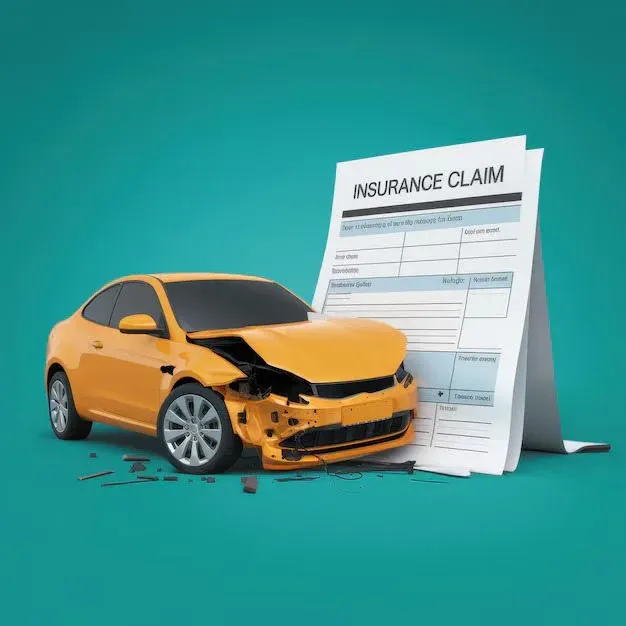
How Much Is Auto Insurance Going to Cost?
Have you ever opened your bills one month and asked yourself where it all went?

More than likely, auto insurance is one of those regular expenses that stops you in your tracks. It's necessary, sure but how much should it really cost? And better yet, are you overpaying?
The reality is that there isn't one price for car insurance. It's not a purchase like a cup of coffee or a gas tank. Your cost can be very different based on your individual circumstances. That doesn't mean you have to enter into it blindly, however. With the proper insight into how rates are determined, you can budget your finances intelligently and possibly save a few dollars in the process.
Let's all break it down in an easy, straightforward manner.
What Factors Go into the Auto Insurance Price?
Consider your auto insurance premium as a customized risk evaluation.

Insurance providers don't start pulling numbers out of a hat. They consider who you are, what vehicle you drive, where you reside, and how you drive in order to figure out what type of risk you are in the car.
For instance, the person with a pristine driving record will most likely pay less than a person who has a recent speeding violation or fender-bender. A driver in a peaceful rural community might find lower premiums than the driver in a densely populated city town with slower traffic and more thefts. A new teenage driver who just got their license? That's usually a warning sign to insurers, even if they haven't misbehaved yet simply because there's a statistically greater likelihood they'll have an accident.
It all adds up to a complicated formula that results in a figure on your bill. And although you can't dictate every variable, you're smarter about making choices when you know what they are.
What's the Average Cost of Car Insurance in 2025?

Let's discuss numbers. The national average price of automobile insurance in the United States, as of this year, is approximately $1,950 a year. That translates to approximately $160 to $180 a month, depending on your coverage level and risk profile.
But that's just a starting point. Your own premium could be substantially lower or higher. It's sort of a comparison of rent values between cities. A one-bedroom apartment in rural Ohio isn't going to be the same as one in San Francisco's downtown area. Auto insurance is similar.
How Your State Affects Your Premium
Where you reside is one of the biggest factors in your cost. Let's take a brief tour of how location influences pricing.
If you live in Michigan, you're paying some of the highest car insurance premiums in the nation. Drivers there frequently pay more than $2,800 per year, mostly because of the state's formerly no-fault insurance system.
Conversely, an Ohio driver could get rates more like $1,100 a year. That's a significant difference particularly for families who have to insure multiple cars.
Within one state alone, rates can be vastly different depending upon your ZIP code. Being in a heavily populated area means more traffic, more likelihood of accidents, and more likelihood of theft or vandalism. And all of those things add up to more cost.
Monthly Budgeting: What to Expect?
For monthly costs, here's a general guideline for what to expect:
Liability-only coverage, the bare bones of insurance in most states, will usually fall in the $40 to $70 per month range.
- Full coverage, including liability, comprehensive, and collision, will usually run $100 to $200 per month.
- These are averages, naturally. Your personal rate will vary based on factors such as the worth of your vehicle, your age, credit rating, and so on.
Why Two Individuals Can Pay Much Lower Rates
You may be amazed to discover your buddy pays much less for the same insurance company. Why the disparity?
Assume your friend is 35, drives a middle-of-the-pack sedan, and hasn't had an accident in well over a decade. You, on the other hand, are 22, purchased a flashy new coupe last month, and had a fender-bender a year ago. Even if you both reside in the same city, your rates may look like they're from two different planets.
Your age, driving history, car type, credit score, and even marital status can all factor into how much you'll pay. That's why it's so important to compare based on your particular circumstance and not make arbitrary comparisons with others.
What Can You Do to Lower Your Premium?

Here's the bad news: You are somewhat at the mercy of your insurance company. But here's the good news: There are steps you can take to reduce your rate over time.
For instance, having a clean driving record is one of the best ways to keep your costs in check. The fewer accidents and tickets on your record, the lower your price will be in the long term.
Increasing your deductible, meaning how much you pay yourself before insurance takes over, can also decrease your monthly premium. Just ensure it's something you can easily afford during an emergency.
Some other tips are:
- Taking a defensive driving class
- Combining your car policy with your homeowners or renters policy
- Employing a usage-based insurance plan that monitors safe driving practices
- Shopping around for quotes every 6–12 months
You’d be surprised how much rates can fluctuate even from one renewal cycle to the next. Loyalty doesn’t always translate to better prices.
Is Auto Insurance Really Worth the Cost?

It's easy to look at insurance as just another bill, but it's really a safety net. If you get into an accident, hit a deer, or get sued for damages, your insurance is what's between you and a severe financial crisis.
Without protection, even a small fender collision could set you back thousands. With it, you pay a consistent monthly fee and enjoy the peace of mind that you're shielded from the unexpected.
Smart Budgeting Starts with Smart Shopping
So, what's the lesson here? Although you can't eliminate all determinants in your premium, you can make smart decisions to lower your overall expense. From tweaking your coverage to seeking discounts, there are more tools in your kit than you may realize.
Begin by obtaining quotes from several different companies. Review the fine print. Know what you're paying for and why. The more you know, the more leverage you have to obtain the proper coverage at a price that makes sense.
Need Help Finding the Right Coverage?
At Savvital, we recognize that each driver's case is unique. That's why we assist you in comparing prices from leading insurers, reveal discounts you are eligible for but not applying for, and tailor a policy that suits your budget and lifestyle.
Whether you're a new driver, a household with multiple cars, or simply someone looking to reduce monthly expenses, we are here for you.
FAQ – Direct Answers to Typical Questions
Q: Why is my car insurance higher than average?
It may be because of your age, driving record, the vehicle you drive, or even your ZIP code.
Q: Can I negotiate my rate?
Not exactly but you can reduce your rates by shopping around, adjusting your coverage, or earning discounts.
Q: Is monthly payment more costly than paying per year?
Yes, often. Some insurers charge administrative fees for monthly payments. Paying annually can save you a bit over time.
Published on 27 Aug 2025
Author: Savvital Team